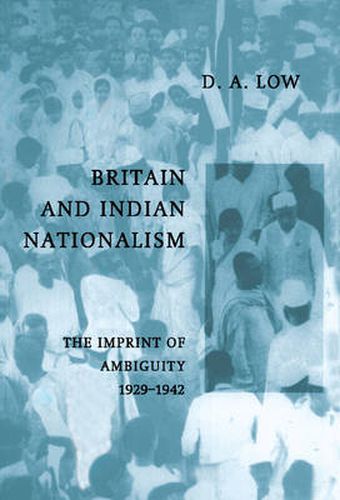Readings Newsletter
Become a Readings Member to make your shopping experience even easier.
Sign in or sign up for free!
You’re not far away from qualifying for FREE standard shipping within Australia
You’ve qualified for FREE standard shipping within Australia
The cart is loading…






India’s struggle for independence was arguably the most momentous of the twentieth century, and central to it was the generation of powerful nationalist forces. In a series of detailed studies Anthony Low shows how the ambiguity of the British position conditioned the distinctive character of this struggle: how the British determination to hold fast their Indian empire (unlike the Americans in the Philippines) prior to 1942 was nonetheless complemented by a reluctance to resist their nationalist opponents in the unyielding ways of the French in Vietnam and the Dutch in Indochina. Much that Gandhi did, Professor Low concludes, would have been unnecessary in the Philippines and impossible in Indonesia and Vietnam, but astutely fitted the peculiar conditions of the nationalist struggle against the British in India. Published on the fiftieth anniversary of Indian independence, Britain and Indian Nationalism makes a major contribution to the historiography of modern India, to Britain’s relations with its empire, and to the history of decolonisation in the twentieth century.
$9.00 standard shipping within Australia
FREE standard shipping within Australia for orders over $100.00
Express & International shipping calculated at checkout
India’s struggle for independence was arguably the most momentous of the twentieth century, and central to it was the generation of powerful nationalist forces. In a series of detailed studies Anthony Low shows how the ambiguity of the British position conditioned the distinctive character of this struggle: how the British determination to hold fast their Indian empire (unlike the Americans in the Philippines) prior to 1942 was nonetheless complemented by a reluctance to resist their nationalist opponents in the unyielding ways of the French in Vietnam and the Dutch in Indochina. Much that Gandhi did, Professor Low concludes, would have been unnecessary in the Philippines and impossible in Indonesia and Vietnam, but astutely fitted the peculiar conditions of the nationalist struggle against the British in India. Published on the fiftieth anniversary of Indian independence, Britain and Indian Nationalism makes a major contribution to the historiography of modern India, to Britain’s relations with its empire, and to the history of decolonisation in the twentieth century.